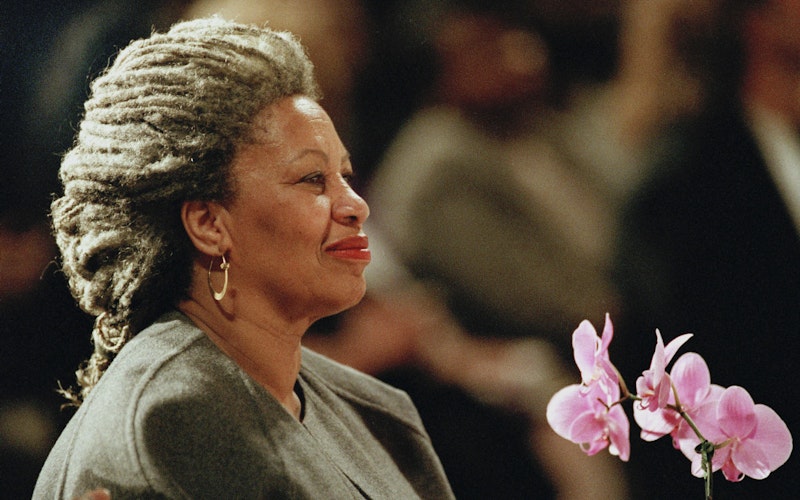
Culture At Large
How Toni Morrison Countered the Canon
I am an English professor whose academic specialty is eighteenth-century British literature: think John Dryden, Daniel Defoe, Alexander Pope, Jonathan Swift, Samuel Richardson, Henry Fielding, Samuel Johnson, and Laurence Sterne. I love these writers. I have lived and breathed them for decades. I write mainly about them and am criticized sometimes for demonstrating too little diversity in sticking closely to my academic specialty.
Yet because—not despite—of this rather narrow area of expertise, reading writers outside this small slice of human experience has been important to me not only as a reader and professor, but simply as a human being.
Toni Morrison, who died last week, has been such a writer—one who tells a different story from so many of the writers who have presided over the canon of literature.
In her TED Talk, “The Danger of a Single Story,” Nigerian author Chimamanda Adichie relays how she grew up in her home country reading British literature. Thus as a child she wrote stories modeled on those she read. “All my characters were white and blue-eyed,” she said. “They played in the snow. They ate apples, and they talked a lot about the weather, how lovely it was that the sun had come out.” The stories which she read that centered on experiences entirely foreign to her seemed in some ways more real to her than the country, climate, culture, and people right in front of her. Imagination—and the stories that inform and form our imagination—is that powerful.
This is one reason why Toni Morrison’s work is so important in the history of literature—and in the lives of her readers. Morrison was not just the first African-American woman to win the Nobel Prize in literature. She was a writer who earned this award by writing a different story: a different story of American history, of blackness, and of humanity. Morrison told the stories of many, many people whose stories had not been told, at least not as widely nor to as many who needed to hear them.
Novels such as Beloved, The Bluest Eye, Song of Solomon, and Sula helped America to see and hear the different stories that were and are the reality for countless people. They are stories of brutal slavery, impossible life-and-death choices, and self-hatred cultivated by the hatred received from others. These are stories that would be easier not to tell, not to read. But Morrison was courageous enough to tell them and skilled enough to tell them exceptionally well. Her stories are as central to the making of America and the future of the world as Adventures of Huckleberry Finn and The Great Gatsby.
Toni Morrison tells a different story from so many of the writers who have presided over the canon of literature.
It is one thing for a person to read the stories of others in order to grow in understanding and knowledge. But it is another to read one’s own story. This is what Morrison offered readers like Ekemini Uwan, who offered a poignant eulogy for Morrison in The Washington Post: “She beckoned us, wooed us, exhorted us to love ourselves fiercely by uprooting the foul seeds of inferiority implanted within our souls before we could utter our names. She called us by our name, Beloved…”
The danger of a single story is in the fact that no single story—except one—can tell the story of all of humanity. This is why Jesus retold the gospel story in so many ways. For the farmer, he recast the good news in a story about the sowing of seeds; for the vintner, he told of new wine in old wineskins; for the baker, he talked about yeast that leavened all the dough; for the merchant, he told a story about a pearl of great price; for the shepherd, he narrated the tale of one lost sheep; for the wealthy, he told the story of a rich, young man; for the poor, he offered the story of the widow’s two mites. These are all aspects of the one true story, but each of them speaks in a different way.
The gospel—which means “good story”—is the only all-encompassing story for humanity. Yet, we need many smaller stories—like those of Toni Morrison—to remind us that the gospel is expansive and true for humanity as a whole.
Topics: Culture At Large